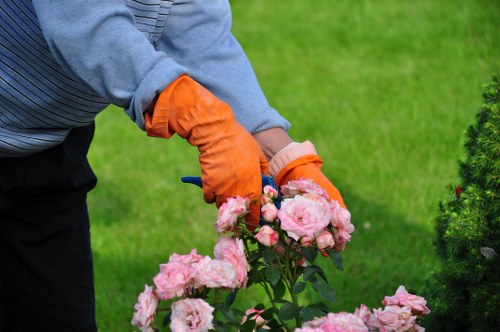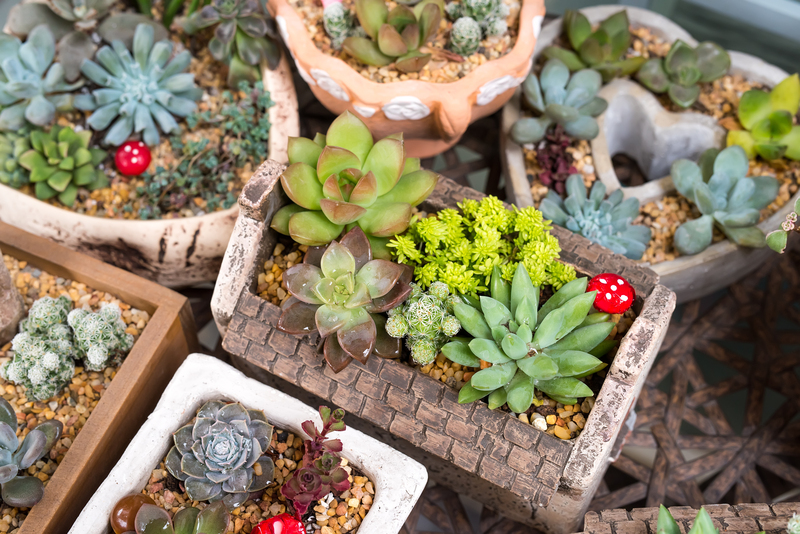Comprehensive Guide to Garden Maintenance in Brockley

Maintaining a beautiful garden in Brockley requires a blend of dedication, knowledge, and the right techniques. Whether you're a seasoned gardener or a beginner, understanding the unique aspects of garden care in this vibrant London area can transform your outdoor space into a thriving oasis.
The climate in Brockley is characterized by mild winters and warm summers, which influences the types of plants that thrive here. Selecting native plants not only ensures better growth but also contributes to the local ecosystem.
Regular pruning is essential for the health of your plants. By removing dead or overgrown branches, you allow more sunlight and air to reach the inner parts of the plant, promoting vigorous growth and reducing the risk of diseases.

Choosing the Right Plants for Brockley Gardens
When selecting plants, it's crucial to consider factors such as sunlight, soil type, and water availability. Species that are well-suited to Brockley's environment will require less maintenance and will be more resilient against pests and diseases.
Incorporating a mix of perennials and annuals can provide a continuous display of color throughout the year. Perennials like lavender and echinacea offer long-lasting blooms, while annuals such as petunias and marigolds add vibrant seasonal flair.
Don't forget to include evergreen plants to ensure your garden remains attractive even during the colder months. Plants like boxwood and holly retain their foliage year-round, providing structure and greenery.

Soil Preparation and Fertilization
Healthy soil is the foundation of a successful garden. Conducting a soil test can help determine its pH level and nutrient content, allowing you to amend it accordingly. Incorporating organic matter like compost improves soil structure, drainage, and fertility.
Regular fertilization provides essential nutrients that support plant growth. Depending on your garden's needs, choose fertilizers that replenish nitrogen, phosphorus, and potassium levels. Organic options, such as bone meal and fish emulsion, are eco-friendly choices that enhance soil health.
Mulching is another important aspect of soil maintenance. A layer of mulch helps retain moisture, suppress weeds, and regulate soil temperature, creating a conducive environment for plant roots.

Watering Techniques for Optimal Growth
Efficient watering practices are vital for maintaining a lush garden. Early morning watering minimizes evaporation and reduces the risk of fungal diseases. Using drip irrigation systems can ensure that water is delivered directly to the plant roots, conserving water and promoting deep root growth.
It's important to establish a watering schedule that aligns with the seasonal changes. During the hotter months, plants will require more frequent watering, while in cooler periods, their water needs decrease.
Rainwater harvesting is an eco-friendly method to supplement your garden's water supply. Collecting and storing rainwater can provide a sustainable source of irrigation, especially during dry spells.

Pest and Disease Management
Maintaining a healthy garden involves vigilant pest and disease control. Regularly inspect your plants for signs of infestation or illness, such as discolored leaves, spots, or unusual growths. Early detection allows for prompt intervention, preventing widespread damage.
Integrated Pest Management (IPM) is an effective strategy that combines biological, cultural, and chemical methods to manage pests sustainably. Encouraging beneficial insects like ladybugs and predatory birds can naturally keep pest populations in check.
Choosing disease-resistant plant varieties and maintaining proper spacing for good air circulation are proactive measures that reduce the likelihood of plant diseases.

Seasonal Garden Maintenance Tips
Each season presents unique challenges and opportunities for your garden. Spring is the time for planting new blooms and preparing beds, while summer focuses on watering and weeding. In autumn, it's essential to clear fallen leaves and prepare plants for the winter months.
Winter garden maintenance includes protecting sensitive plants from frost and pruning deciduous trees and shrubs. Using frost cloths and mulching around plant bases can provide added insulation against cold temperatures.
Regularly cleaning garden tools and storing them properly ensures they remain in good condition, ready for use in the upcoming seasons.
